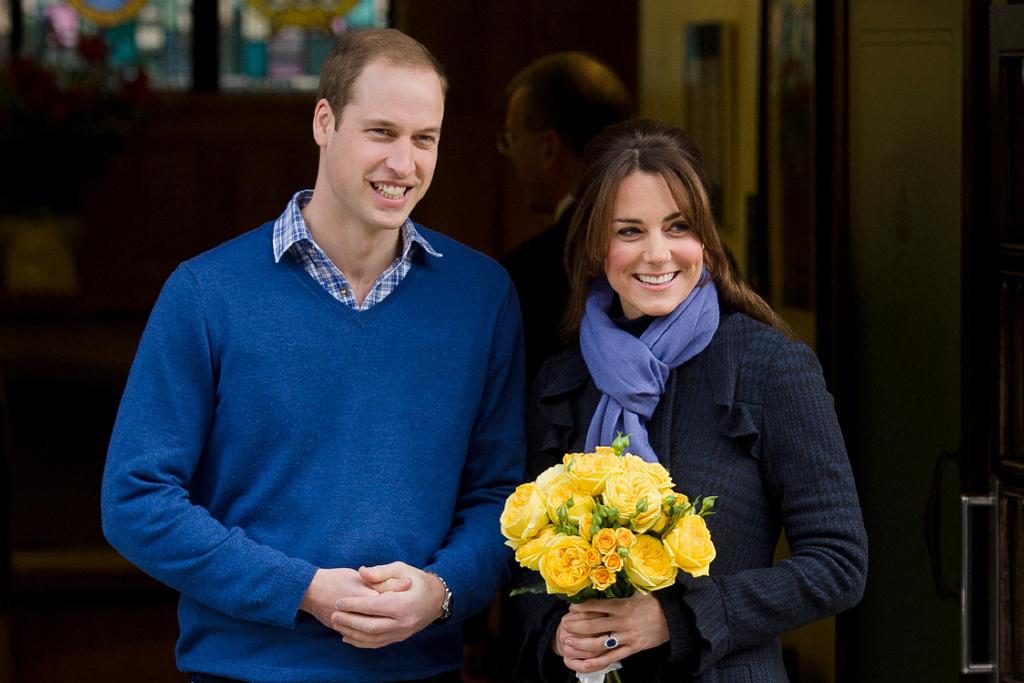Royal equality: Kate Middleton and Prince William’s daughter will be referred to as ‘Princess’
Prince William and and his wife Kate Dec. 6, 2012 outside King Edward VII hospital in London.
The upcoming royal baby will be referred to as "Her Highness" and "Princess" if it ends up being a girl, announced the Queen Thursday, ending a tradition that dates back to George V that dictates only male royal progeny would receive the title of "Prince."
Queen Elizabeth announced that she had issued a Royal Letters Patent that changed the old convention, which had been in place since 1917, wrote the BBC.
The Royal Letters Patent was released to the public in the London Gazette, as per tradition.
Read more from GlobalPost: Kate Middleton, a.k.a. Duchess of Cambridge, planning quiet celebration for 31st birthday (PHOTOS)
The Letters Patent reads like this, per the BBC: "All the children of the eldest son of the Prince of Wales should enjoy the style, title and attribute of Royal Highness with the titular dignity of Prince or Princess prefixed to their Christian names."
Prior to the change, female offspring of the two would instead have been given the title of "Lady," wrote the Mirror.
It's another move toward gender parity in England's royal family, which announced last year that the eldest child of the duchess and duke of Cambridge will become the future symbolic ruler of the realm — whether it's a girl, or a boy.
Previously, male offspring could "skip the line" to the crown over their elder sisters, a tradition that had become archaic in the 21st century world.
Read more from GlobalPost: Kate Middleton pregnant with royal baby
"I think they're fully aware of the fact that our most successful monarchs have been women – Elizabeth I, Queen Anne, Queen Victoria, our own queen," said royal historian Robert Lacey to the Guardian, regarding the new primogeniture move.
"In a modern society, where the royals have psychic power rather than actual power, it's all about keeping the monarchy in business – and they know that a woman will probably do that better than a man," he added.
The move, which had been expected, generated little reaction in Britain. Charles Kidd, editor of Debrett's Peerage and Baronetage, told the UK’s Press Association that the Queen’s decree is a logical step.
"Letters Patent are simply a way that the Sovereign signifies making an alteration or proclamation that doesn't go through Parliament,” he said. "It's not very rare. They're quite commonly used for example whenever a life peer is created."
"When Prince William was made Duke of Cambridge that was a new Letters Patent under the Great Seal of the Realm," he added.
Middleton turned 31 on Wednesday — the same day as the Queen's announcement — and marked the occasion in a quiet home celebration with her husband and the royal family.
It was also revealed on Thursday that royal aides have sought planning permission to redevelop a mansion on an estate owned by the Queen in eastern England, fueling rumors it is being prepared as a future home for Kate and William.
The application was made for the Sandringham, the extensive grounds where the royal family traditionally gather at Christmas, to local authorities.
It followed reports that the monarch is preparing to gift the estate’s large Anmer Hall property, a large Georgian-built house formerly occupied by the Duke and Duchess of Kent.
Our coverage reaches millions each week, but only a small fraction of listeners contribute to sustain our program. We still need 224 more people to donate $100 or $10/monthly to unlock our $67,000 match. Will you help us get there today?
